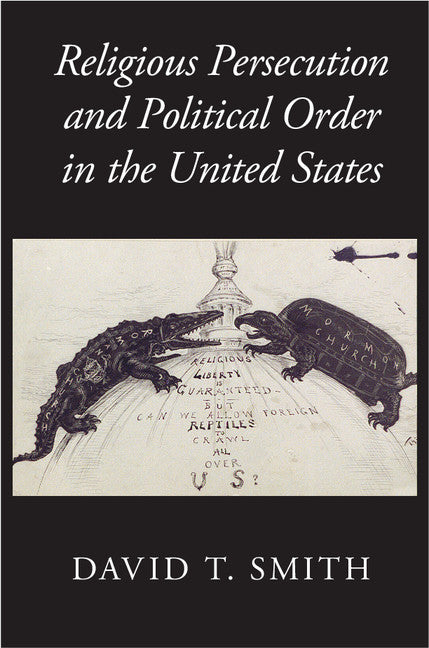Freshly Printed - allow 8 days lead
Couldn't load pickup availability
Religious Persecution and Political Order in the United States
This book explains why the United States, a country that values religious freedom, has persecuted some religious minorities while protecting others.
David T. Smith (Author)
9781107117310, Cambridge University Press
Hardback, published 12 November 2015
280 pages, 1 b/w illus.
23.5 x 15.8 x 2 cm, 0.52 kg
Religious freedom is a foundational value of the United States, but not all religious minorities have been shielded from religious persecution in America. This book examines why the state has acted to protect some religious minorities while allowing others to be persecuted or actively persecuting them. It details the persecution experiences of Mormons, Jehovah's Witnesses, Catholics, Jews, the Nation of Islam, and orthodox Muslims in America, developing a theory for why the state intervened to protect some but not others. The book argues that the state will persecute religious minorities if state actors consider them a threat to political order, but they will protect religious minorities if they believe persecution is a greater threat to political order. From the beginning of the republic to after 9/11, religious freedom in America has depended on the state's perception of political threats.
1. Introduction
2. Religious freedom and persecution in America: a theoretical overview
3. Joseph Smith and the rise of Mormonism
4. The federal response to Mormonism
5. Jehovah's Witnesses and the flag salute, 1870–1940
6. Mass violence against Jehovah's Witnesses, 1940–2
7. The Catholic experience in America
8. The Jewish experience in America
9. The Islamic experience in America
10. Conclusion
11. Sources and bibliography.
Subject Areas: Constitution: government & the state [JPHC]


